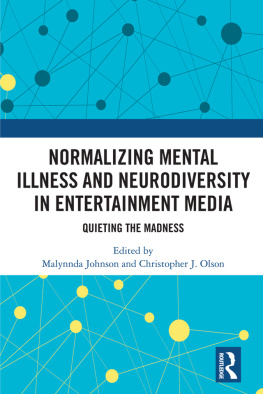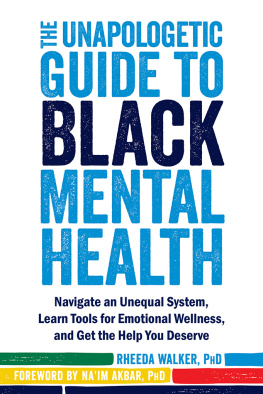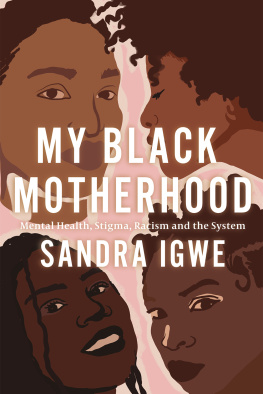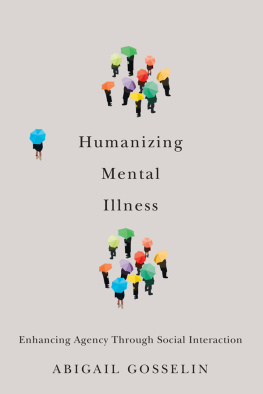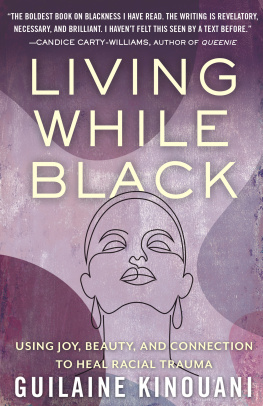
Crazy Funny
This book examines the ways in which contemporary works of black satire make black racial madness legible in ways that allow us to see the connections between suffering from racism and suffering from mental illness.
Showing how an understanding of racism as a root cause of mental and emotional instability complicates the ways in which we think about racialized identity formation and the limits of socially accepted definitions of (in)sanity, it concentrates on the unique ability of the genre of black satire to make knowable not only general qualities of mental illness that are so often feared or ignored, but also how structures of racism contribute a specific dimension to how we understand the different ways in which people of color, especially black people, experience and integrate mental instability into their own understandings of subjecthood.
Drawing on theories from ethnic studies, popular culture studies, cultural studies, psychoanalysis, and trauma theory to offer critical textual analyses of five different instances of new millennial black satire in television, film, and literature the television show Chappelles Show, the Spike Lee film Bamboozled, the novel The White Boy Shuffle by Paul Beatty, the novels Erasure and I Am Not Sidney Poitier by Percival Everett, and the television show Key & PeeleCrazy Funny presents an account of the ways in which contemporary black satire rejects the boundaries between sanity and insanity as a way to animate the varied dimensions of being a racialized subject in a racist society.
Lisa A. Guerrero is Associate Professor of Comparative Ethnic Studies in the School of Languages, Cultures, and Race at Washington State University, USA. She is the editor of Teaching Race in the 21st Century and the co-editor of African Americans on Television: Race-ing for Ratings.
The Cultural Politics of Media and Popular Culture
Series Editor:
C. Richard King, Washington State University, USA
Dedicated to a renewed engagement with culture, this series fosters critical, contextual analyses and cross-disciplinary examinations of popular culture as a site of cultural politics. It welcomes theoretically grounded and critically engaged accounts of the politics of contemporary popular culture and the popular dimensions of cultural politics. Without being aligned to a specific theoretical or methodological approach, The Cultural Politics of Media and Culture publishes monographs and edited collections that promote dialogues on central subjects, such as representation, identity, power, consumption, citizenship, desire and difference.
Offering approachable and insightful analyses that complicate race, class, gender, sexuality, (dis)ability and nation across various sites of production and consumption, including film, television, music, advertising, sport, fashion, food, youth, subcultures and new media, The Cultural Politics of Media and Popular Culture welcomes work that explores the importance of text, context and subtext as these relate to the ways in which popular cultures work alongside hegemony.
Also available in the series:
Make America Hate Again
Trump-Era Horror and the Politics of Fear
Edited by Victoria McCollum
Prestige Television and Prison in the Age of Mass Incarceration
A Wall Rise Up
Victoria M. Bryan
Crazy Funny
Popular Black Satire and the Method of Madness
Lisa A. Guerrero
For more information about this series, please visit: https://www.routledge.com/The-Cultural-Politics-of-Media-and-Popular-Culture/book-series/ASHSER-1395
First published 2020
by Routledge
2 Park Square, Milton Park, Abingdon, Oxon OX14 4RN
and by Routledge
52 Vanderbilt Avenue, New York, NY 10017
Routledge is an imprint of the Taylor & Francis Group, an informa business
2020 Lisa A. Guerrero
The right of Lisa A. Guerrero to be identified as author of this work has been asserted by her in accordance with sections 77 and 78 of the Copyright, Designs and Patents Act 1988.
All rights reserved. No part of this book may be reprinted or reproduced or utilized in any form or by any electronic, mechanical, or other means, now known or hereafter invented, including photocopying and recording, or in any information storage or retrieval system, without permission in writing from the publishers.
Trademark notice: Product or corporate names may be trademarks or registered trademarks, and are used only for identification and explanation without intent to infringe.
British Library Cataloguing in Publication Data
A catalogue record for this book is available from the British Library
Library of Congress Cataloging-in-Publication Data
Names: Guerrero, Lisa, author.
Title: Crazy funny : popular black satire and the method of madness / Lisa A. Guerrero.
Description: Milton Park, Abingdon, Oxon ; New York, NY : Routledge, 2020. |
Series: The cultural politics of media and popular culture | Includes bibliographical references and index. |
Identifiers: LCCN 2019024563 | ISBN 9781138606487 (hardback) |ISBN 9780429467639 (ebook)
Subjects: LCSH: African Americans in mass media. | American literature--African American authors--History and criticism. | Satire, American--History and criticism. | Literature and mental illness--United States--History--20th century. | African Americans--Race identity. | African Americans in popular culture. | African Americans and mass media. | African Americans--Intellectual life.
Classification: LCC P94.5.A372 U555 2020 | DDC 302.23089/96073--dc23
LC record available at https://lccn.loc.gov/2019024563
ISBN: 978-1-138-60648-7 (hbk)
ISBN: 978-0-429-46763-9 (ebk)
For Nana, who is in everything I do
Though I try to live a life of gratitude, I often fall short, like most people do. However, most people dont get the opportunity to say thank you in a public way like in the acknowledgments of a book they have written. Heres my rare opportunity. And to all who are included on this list of gratitude, know that you have made a big difference in this endeavor and in my life. And remind me that, when I see you next, I owe you a hug.
First, to Routledge and the lovely editorial assistant, Alice Salt, and all of the wonderful staff who helped me with each step, Lakshita Joshi, Adam Guppy, and Louise Jellard, thank you for giving Crazy Funny a home and for being patient and encouraging during the process.
Next, there are countless friends I have made within academia that I will be eternally grateful for meeting either in real life or in virtual life. Though I cant name every single one of you here, please know that I consider you my tribe and appreciate you for being models, mentors, cheerleaders, and endless inspirations. I hope Im like all of you when I grow up.
To my family at Washington State University: David J. Leonard, Carmen R. Lugo-Lugo, Mary Bloodsworth-Lugo, Rich King, and Paula Groves-Price, I dont know what I would do without you all. Your love and support keep me going. I am forever grateful for your brilliance and friendship. And a special thank you to Rich for encouraging me to take one more chance on Crazy Funny


